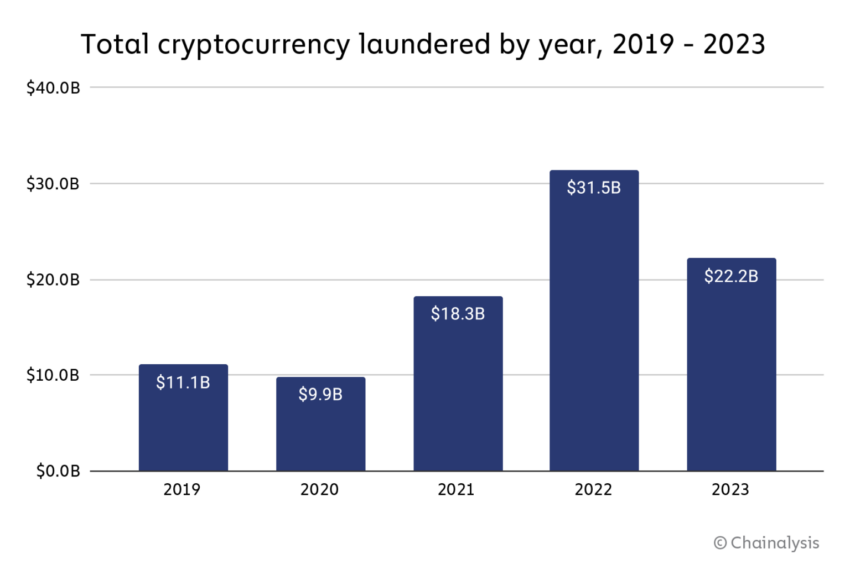In a recent address to Congress, US Treasury Deputy Secretary Wally Adeyemo expressed urgent concerns. He emphasized the risk of increased crypto use by terrorist organizations and hostile nations.
Speaking to the Senate Banking, Housing and Urban Affairs Committee, Adeyemo advocated for legislative action.
US Treasury Seeks Additional Powers Against Illicit Crypto Transactions
Adeyemo highlighted the need to thwart the misuse of crypto by groups like al Qaeda and Hamas, as well as countries such as Russia and North Korea.
“We need to build an enforcement regime that is capable of preventing this activity as more terrorists, transnational criminals, and rogue states turn to digital assets. That’s why we sent the Committee proposals to strengthen counter-terrorist financing authorities,” Adeyemo wrote.
However, a contrasting perspective was presented earlier by Brian Nelson, Undersecretary for Terrorism and Financial Intelligence. Nelson stated that the extent of crypto’s role in terrorism financing might be overestimated.
This statement followed an incident where initial reports from the Wall Street Journal, based on analytics from Elliptic, misinterpreted data, suggesting large crypto transactions linked to Hamas. Later, Elliptic clarified that Hamas had received only $21,000 in crypto, significantly less than reported.
Read more: Crypto Regulation: What Are the Benefits and Drawbacks?
Despite the corrected data, over 100 lawmakers pursued strict cryptocurrency regulations. They acted on the initial inflated figures. Consequently, this legislative drive, anchored in national security concerns, faced opposition for potentially stifling innovation and expatriating the crypto industry.
Representative Tom Emmer criticized the hurried legislative process. He stressed the importance of accurate data in financial regulation debates.
Nonetheless, Adeyemo’s testimony also sheds light on the sophisticated tactics of rogue states like North Korea. These states accumulate illicit revenue through cryptocurrencies via complex cyber heists. The United Nations disclosed that North Korea’s crypto-related cyberattacks have garnered an estimated $3 billion.
This sum significantly fuels its weapons programs, constituting a major part of its foreign currency revenue.
Furthermore, the discussion encompassed Russia’s adept use of cryptocurrencies to sidestep financial sanctions. Russia allegedly employs stablecoins like Tether’s USDT to fund military operations, including clandestinely acquiring crucial military hardware components.

Adeyemo called for additional legislative backing to empower the Treasury to combat digital currency misuse by malicious actors effectively. He advocated for comprehensive regulations targeting foreign cryptocurrency exchanges and money services.
Additionally, he emphasized the need to plug the gaps in existing laws. These gaps have emerged as virtual asset wallet providers and cryptocurrency exchanges evolved after the establishment of current regulations.
Read more: 7 Best Crypto Exchanges in the USA for Bitcoin (BTC) Trading
Echoing the Treasury’s concerns, Coinbase Global and Circle Internet Financial have voiced the need for regulatory clarity. They highlighted the competitive disadvantage US companies face due to the existing regulatory uncertainty.
Disclaimer
In adherence to the Trust Project guidelines, BeInCrypto is committed to unbiased, transparent reporting. This news article aims to provide accurate, timely information. However, readers are advised to verify facts independently and consult with a professional before making any decisions based on this content. Please note that our Terms and Conditions, Privacy Policy, and Disclaimers have been updated.

